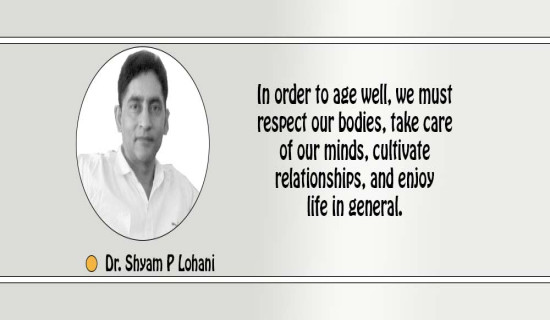- Monday, 12 May 2025
Attitude Of Gratitude
Robin D. Stone
The concept of gratitude has value beyond one day or one month during the year. Gratitude also means embracing the idea of giving thanks even when it’s hard. Each year, as Thanksgiving approaches, we hear a lot about gratitude – expressing thankfulness for the food we will eat, our loved ones, and our health. Our holiday rituals may have become routine and may even seem rote or superficial — especially against a backdrop of wars and distress in some parts of the world. The real history of Thanksgiving may also affect how we feel about this tradition.
The holiday gives us the opportunity to think about gratitude as a mindset and a practice — a form of self-care. When we are genuinely grateful, we are recognising and acknowledging what we have instead of what we lack and demonstrating appreciation for all the good in our lives. Think of gratitude as a wellness practice that builds our resilience. Gratitude can make us feel more positive emotions, help us cope with adversity, and even improve our health and relationships. In one study, people who wrote a few sentences each week about things they were grateful for were more optimistic and had fewer doctor visits after 10 weeks than those who wrote about daily irritations.
Another study found that participants who wrote and delivered letters of gratitude to people who had been kind to them reported greater happiness. The benefits of these gratitude letters lasted a month. Let me be clear: By gratitude, I don’t mean being thankful for what you’ve rightfully earned. So, what does it mean to cultivate a genuine sense of gratitude? It could take the form of simple rituals like saying grace before meals but does not have to centre around food as Thanksgiving does. Those of us who pray or meditate regularly are practicing gratitude and know the benefits. The act of writing slows us down and allows us to be more intentional about our gratitude. You can write a thank you to someone who has done you a kindness.
In this era of electronic texts and emails, taking the time to put pen to paper can be rewarding for both you and the recipient. Take a walk in your neighbourhood or visit your favourite nature spot and use your senses to notice the wonders around you. If you are in a park, for example, tune into what you see, smell, hear, and feel. What colours do you see in the leaves? What fragrance is in the air? Can you hear birds chirping or water running? Does the air feel cool or crisp? Do you feel the warmth of the sun? Try to zero in on what you appreciate about your natural surroundings. You can do this with any container, like a Mason jar, small bowl, or box. You can decorate it with a colourful label or ribbon or just keep it simple.
On a slip of paper or post-it note, jot down what you are grateful for in a few words or even with a doodle or drawing. Examples might include “Unexpected call from an old friend,” “My helpful neighbour or co-worker,” or “A beautiful sunset.” It can be anything that makes you feel good. Drop the paper in the jar and repeat daily, weekly or monthly. When the jar fills up or when you’re simply having a rough day, remove a few slips of paper and read them to remind yourself of all the good things you’ve experienced.
- Psychology Today
















